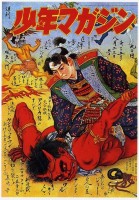 Paul Pope posts some classic covers designed by Tadanori Yokoo for Shonen Magazine in the 1970s—plus a later illustration that draws on the same themes. (Via Journalista.)
Paul Pope posts some classic covers designed by Tadanori Yokoo for Shonen Magazine in the 1970s—plus a later illustration that draws on the same themes. (Via Journalista.)
Kate Dacey doesn’t just look at this week’s new comics, she writes haiku about them.
Melinda Beasi posts another Manhwa Monday roundup at Manga Bookshelf.
Gia Manry spots Delivery Cupid for the Kindle, and it’s not an American edition, exactly—Japanese publisher Libre seems to have published it in English. (The manga was previously published in English by the now-defunct Broccoli Books, so this is presumably that same translation.)
Udon has a preview of vol. 1 of Mega Man ZX.
Garrett Albright is having some serious issues with the people that handle Yen Plus subscriptions.
News from Japan: This is not quite manga, but it’s a warning for those who skirt the law: Some users of a pirated version of the ero visual novel Cross Games unwittingly downloaded a trojan horse that grabs personal information from the user’s computer, takes a screen shot of the game, and posts it all online. (Note: The original story is fine, but links are NSFW.)
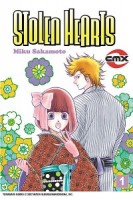 Reviews: Kate Dacey reviews the first volumes of three new shoujo series, Cactus’s Secret, My Darling! Miss Bancho, and Stolen Hearts, at The Manga Critic. Carlo Santos takes a good look at some recent releases in his latest Right Turn Only!! column. And Ed Sizemore looks at some of this month’s Tokyopop releases at Comics Worth Reading.
Reviews: Kate Dacey reviews the first volumes of three new shoujo series, Cactus’s Secret, My Darling! Miss Bancho, and Stolen Hearts, at The Manga Critic. Carlo Santos takes a good look at some recent releases in his latest Right Turn Only!! column. And Ed Sizemore looks at some of this month’s Tokyopop releases at Comics Worth Reading.
Connie on vol. 4 of Black Bird (Slightly Biased Manga)
Rob McMonigal on vol. 3 of Black Jack (Panel Patter)
Dave Ferraro on vol. 1 of Bunny Drop (Comics-and-More)
Sean Gaffney on vol. 1 of Dorohedoro (A Case Suitable for Treatment)
Sean Gaffney on vols. 1 and 2 of Fullmetal Alchemist (A Case Suitable for Treatment)
Johanna Draper Carlson on vols. 1 and 2 of Happy Cafe (Comics Worth Reading)
Tiamat’s Disciple on vol. 2 of Hero Tales (Tiamat’s Manga Reviews)
Tangognat on vol. 4 of Knights of the Zodiac (Tangognat)
Connie on vol. 1 of The Lapis Lazuli Crown (Slightly Biased Manga)
Snow Wildsmith on vol. 2 of Nabari no Ou (Manga Jouhou)
Lori Henderson on vol. 2 of Nightschool (Manga Xanadu)
David Welsh on Ode to Kirihito (Precocious Curmudgeon)
Marsha Reid on vol. 1 of One Fine Day (Kuriousity)
Leroy Douresseaux on vol. 38 of One Piece (The Comic Book Bin)
Connie on vols. 39 and 40 of One Piece (Slightly Biased Manga)
Danielle Leigh on Ristorante Paradiso (Comics Should Be Good)
Kristin on vols. 1-3 of Sarasah (Comic Attack)
Erica Friedman on vol. 6 of Sasamekikoto (Okazu)
Diana Dang on vols. 1 and 2 of St. Dragon Girl (Stop, Drop, and Read)
Tiamat’s Disciple on vol. 3 of Sumomomo,Momomo (Tiamat’s Manga Reviews)
Julie Opipart on vol. 1 of Twilight: The Graphic Novel (Manga Maniac Cafe)
 We all know that not all manga features characters with enormous eyes, but Paul Gravett has a conversation with one of the uninitiated and then lists
We all know that not all manga features characters with enormous eyes, but Paul Gravett has a conversation with one of the uninitiated and then lists  Yes, it’s hella impressive that One Piece sells 3 million copies in Japan alone, and it’s true that the U.S. can barely sell 1 percent of that as printed books right now, but if you really make an effort to make a legit version of One Piece available in English, Spanish, Tagalog and Arabic and whatever other languages have sufficient untapped audiences, surely you can find a way to monetize a few million more. Your biggest audience doesn’t have access to a well stocked bookstore—they are getting their content online. Scanlation sites are reaping profits from Google ads by giving away your content—if you were the one giving it away, you could not only track how many readers you really have, but you could get more $ out of each reader with targeted ads and links to licensed merchandise. You could take a page from the Free-to-Play gaming market, where companies are finding ways to give minors a free shared culture while still making a nice profit.
Yes, it’s hella impressive that One Piece sells 3 million copies in Japan alone, and it’s true that the U.S. can barely sell 1 percent of that as printed books right now, but if you really make an effort to make a legit version of One Piece available in English, Spanish, Tagalog and Arabic and whatever other languages have sufficient untapped audiences, surely you can find a way to monetize a few million more. Your biggest audience doesn’t have access to a well stocked bookstore—they are getting their content online. Scanlation sites are reaping profits from Google ads by giving away your content—if you were the one giving it away, you could not only track how many readers you really have, but you could get more $ out of each reader with targeted ads and links to licensed merchandise. You could take a page from the Free-to-Play gaming market, where companies are finding ways to give minors a free shared culture while still making a nice profit.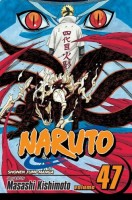 Why do we need you? Seriously. There’s not a lot of sympathy for the industry, because frankly, you guys aren’t doing much to earn it. You didn’t convince me Bleach was cool—I figured that out on my own, 6 months before you announced it. And you want me to spend how much to read it legit? $300?! I could buy a PS3 or the entirety of Buffy, Angel, Firefly and anything else Whedon produces for the next five years for that price, and either of those will give me so much more bang for the buck. And that’s just one series. To stay up-to-date with just the biggest hits, the cost is astronomical: Naruto: $400; Fruits Basket: $250; Vampire Knight: $90; Negima: $300. No wonder more people are reading your books on the bookstore floors than buying them—your value sucks. And it’s not fair to say “well, readers should pick and choose just the few that they can afford and read only those,” because you know perfectly well that the lifeblood of fandom is a shared passion—that’s what allowed the manga boom in the first place. You embraced the manga conversation going big—you put 500 titles a year on the shelves. Like it or not, American Publishers, your core audience doesn’t have credit cards, and they are hungry for content. Scanlations aren’t authorized, but the convenience and value they offer is awfully compelling. Fans expecting to read any manga they want for free isn’t reasonable, but neither is it reasonable to expect your audience to pay hundreds or thousands of dollars a year to stay up to date with content that their Japanese kindred spirits can get for a quarter the cost.
Why do we need you? Seriously. There’s not a lot of sympathy for the industry, because frankly, you guys aren’t doing much to earn it. You didn’t convince me Bleach was cool—I figured that out on my own, 6 months before you announced it. And you want me to spend how much to read it legit? $300?! I could buy a PS3 or the entirety of Buffy, Angel, Firefly and anything else Whedon produces for the next five years for that price, and either of those will give me so much more bang for the buck. And that’s just one series. To stay up-to-date with just the biggest hits, the cost is astronomical: Naruto: $400; Fruits Basket: $250; Vampire Knight: $90; Negima: $300. No wonder more people are reading your books on the bookstore floors than buying them—your value sucks. And it’s not fair to say “well, readers should pick and choose just the few that they can afford and read only those,” because you know perfectly well that the lifeblood of fandom is a shared passion—that’s what allowed the manga boom in the first place. You embraced the manga conversation going big—you put 500 titles a year on the shelves. Like it or not, American Publishers, your core audience doesn’t have credit cards, and they are hungry for content. Scanlations aren’t authorized, but the convenience and value they offer is awfully compelling. Fans expecting to read any manga they want for free isn’t reasonable, but neither is it reasonable to expect your audience to pay hundreds or thousands of dollars a year to stay up to date with content that their Japanese kindred spirits can get for a quarter the cost.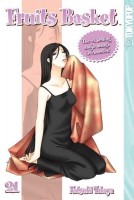 American publishers, there’s no doubt that with your resources, you could deliver a superior product to scanlators. Heck, if you had the freedom to release authorized digital versions, you could offer multiple translations on different tracks to provide both “authentic” versions and naturalized versions. But it’s not fair to blame you for the Japanese publishers’ fear of embracing a digital/international market. Tokyopop in particular, I know you’ve been trying to go digital for a decade. But if all you can publish is a print edition, then let’s see the best damn print edition the market can afford. A one-size-fits-all model, especially when the default price is the middling, but not that attractive, price of $8-$12, can’t really be the best option, can it? GoGo Monster is a gorgeous book! Maybe if you did a few thousand copies of Bleach with that level of production artistry for serious fans, as Marvel and DC do with their perennials, you could offset a more reasonable price for those who just want to keep up with the story? Give your readers something really special—an experience they can’t get from digital. You really can’t control the conversation, but you can certainly do a better job of capitalizing on it and keeping yourselves relevant.
American publishers, there’s no doubt that with your resources, you could deliver a superior product to scanlators. Heck, if you had the freedom to release authorized digital versions, you could offer multiple translations on different tracks to provide both “authentic” versions and naturalized versions. But it’s not fair to blame you for the Japanese publishers’ fear of embracing a digital/international market. Tokyopop in particular, I know you’ve been trying to go digital for a decade. But if all you can publish is a print edition, then let’s see the best damn print edition the market can afford. A one-size-fits-all model, especially when the default price is the middling, but not that attractive, price of $8-$12, can’t really be the best option, can it? GoGo Monster is a gorgeous book! Maybe if you did a few thousand copies of Bleach with that level of production artistry for serious fans, as Marvel and DC do with their perennials, you could offset a more reasonable price for those who just want to keep up with the story? Give your readers something really special—an experience they can’t get from digital. You really can’t control the conversation, but you can certainly do a better job of capitalizing on it and keeping yourselves relevant. Let me break that down. First the “we.” For the past 10 years, I’ve been an “industry guy,” starting as a Junior Editor at Tokyopop and moving up the ranks there, before working as a freelance editor/adaptor for Viz and CMX, as well as serving as Editorial Director at GoComi for the company’s first year. So why do I say “we” when talking about fandom? Let me give you a full disclosure. My introduction to anime (outside of episodes of Robotech that I ate up as a kid) came from crashing the local college’s anime club as a young teen with a couple friends, one of whom had an older brother who was a member. This was at the very beginning of the modern anime industry when Akira was first making waves. Authorized content was scarce, so we’d watch a combination of legit VHS copies, product brought back from Japan (laserdiscs with subtitles, if possible!), and sometimes even rips of TV of newer shows, static and all. Sometimes the club leader would pass out transcripts or summaries of the raw stuff so that we could follow along, or else you’d want to sit close to the one guy who spoke Japanese so he could fill you in. One of the club’s favorite series was Ranma ½, which Viz was releasing pretty close to its original release. At one point though, we caught up and I distinctly remember the energy in the room when someone would bring in tapes of the very latest, untranslated episodes. I distinctly remember the collective thrill of being ahead of the curve.
Let me break that down. First the “we.” For the past 10 years, I’ve been an “industry guy,” starting as a Junior Editor at Tokyopop and moving up the ranks there, before working as a freelance editor/adaptor for Viz and CMX, as well as serving as Editorial Director at GoComi for the company’s first year. So why do I say “we” when talking about fandom? Let me give you a full disclosure. My introduction to anime (outside of episodes of Robotech that I ate up as a kid) came from crashing the local college’s anime club as a young teen with a couple friends, one of whom had an older brother who was a member. This was at the very beginning of the modern anime industry when Akira was first making waves. Authorized content was scarce, so we’d watch a combination of legit VHS copies, product brought back from Japan (laserdiscs with subtitles, if possible!), and sometimes even rips of TV of newer shows, static and all. Sometimes the club leader would pass out transcripts or summaries of the raw stuff so that we could follow along, or else you’d want to sit close to the one guy who spoke Japanese so he could fill you in. One of the club’s favorite series was Ranma ½, which Viz was releasing pretty close to its original release. At one point though, we caught up and I distinctly remember the energy in the room when someone would bring in tapes of the very latest, untranslated episodes. I distinctly remember the collective thrill of being ahead of the curve. Where does passion and innocence become something more nefarious? Before I can do any finger pointing, I really need to be honest about my own experiences. Was my passive involvement in an anime club, watching unauthorized screenings of frequently unlicensed work, strictly legal? Not really. Did I think I was doing something wrong? Well, sorta in that I was watching cartoon boobs that my mom probably wouldn’t have approved of, but did I think I was stealing, no. I didn’t think so then, I don’t think so now. What I was doing was mooching. Most of what we watched was a legit purchase, whether licensed or imported, either owned by a member or paid for with club dues. At the time (mostly this happened when I was 12-14), I didn’t have the money or the laserdisc player or the access to buy legit anime on the scale that the club made possible, but my attendance did turn me onto the local comics shop where the owner was a serious otaku. Even if I couldn’t afford laserdiscs, I could buy an occasional die-cast mecha. My tweenage freeloading also planted the seeds for my teenage spending, so that when Evangelion, Macross Plus and the next wave of anime releases hit, I saved up and bought a few series of my own, and the OSTs to boot. At the end of the day, I consider myself a responsible fan. Naïve at times, absolutely. Professional work aside, I think I’ve done my part to feed the industry both by buying what I loved when I had the means, and by contributing to the greater anime/manga fan discussion through legitimate channels (in my case, primarily by contributing articles to the online fanzine animefringe). I would wager that most fans think of themselves the same way. Solid citizens. Even so, I do think something has changed in fandom over the past 10 years. It happened slowly and without malice, but this change has turned fandom’s relationship with the industry from a symbiotic one to a harmful, parasitic one.
Where does passion and innocence become something more nefarious? Before I can do any finger pointing, I really need to be honest about my own experiences. Was my passive involvement in an anime club, watching unauthorized screenings of frequently unlicensed work, strictly legal? Not really. Did I think I was doing something wrong? Well, sorta in that I was watching cartoon boobs that my mom probably wouldn’t have approved of, but did I think I was stealing, no. I didn’t think so then, I don’t think so now. What I was doing was mooching. Most of what we watched was a legit purchase, whether licensed or imported, either owned by a member or paid for with club dues. At the time (mostly this happened when I was 12-14), I didn’t have the money or the laserdisc player or the access to buy legit anime on the scale that the club made possible, but my attendance did turn me onto the local comics shop where the owner was a serious otaku. Even if I couldn’t afford laserdiscs, I could buy an occasional die-cast mecha. My tweenage freeloading also planted the seeds for my teenage spending, so that when Evangelion, Macross Plus and the next wave of anime releases hit, I saved up and bought a few series of my own, and the OSTs to boot. At the end of the day, I consider myself a responsible fan. Naïve at times, absolutely. Professional work aside, I think I’ve done my part to feed the industry both by buying what I loved when I had the means, and by contributing to the greater anime/manga fan discussion through legitimate channels (in my case, primarily by contributing articles to the online fanzine animefringe). I would wager that most fans think of themselves the same way. Solid citizens. Even so, I do think something has changed in fandom over the past 10 years. It happened slowly and without malice, but this change has turned fandom’s relationship with the industry from a symbiotic one to a harmful, parasitic one. Widespread availability of unauthorized content, be they torrents or scanlations, enabled this change, but that’s not the root of the problem as I see it. What changed was fandom’s concept of ownership, and the product itself is only part of that equation. Way back in my open letter to publishers, I made several mentions of “The Conversation.” Japan, Tokyopop, “the man”—they don’t own The Conversation. Fans do. Marketers want to shape The Conversation (and in plenty aspects of fandom, we let them), but the joy of being a part of a subculture is that we can decide for ourselves what’s cool and what’s crap. The Conversation takes many forms—from blog posts, to convention panels, to Tumblr memes to Deviantart networks to good old-fashioned club meetings. The Conversation can include both licensed and unlicensed works. It can include fanfic, slash doujinshi and official merch. The Conversation can include SPOILERS. Who says you can’t talk about the events of Bleach, chapter 265, six months before it comes to the U.S.? No one!
Widespread availability of unauthorized content, be they torrents or scanlations, enabled this change, but that’s not the root of the problem as I see it. What changed was fandom’s concept of ownership, and the product itself is only part of that equation. Way back in my open letter to publishers, I made several mentions of “The Conversation.” Japan, Tokyopop, “the man”—they don’t own The Conversation. Fans do. Marketers want to shape The Conversation (and in plenty aspects of fandom, we let them), but the joy of being a part of a subculture is that we can decide for ourselves what’s cool and what’s crap. The Conversation takes many forms—from blog posts, to convention panels, to Tumblr memes to Deviantart networks to good old-fashioned club meetings. The Conversation can include both licensed and unlicensed works. It can include fanfic, slash doujinshi and official merch. The Conversation can include SPOILERS. Who says you can’t talk about the events of Bleach, chapter 265, six months before it comes to the U.S.? No one!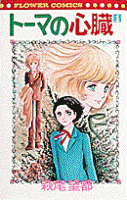 Why should we respect publishers, Japanese and English, if it’s only the creators we care about? Because creators rarely create in a vacuum. Even if a creator writes and draws everything alone (which with manga is almost never the case), it takes years of thankless work and sacrifice before a creator makes that breakthrough hit that captures the attention of the world. When a publisher takes on a new creator, it’s a gamble—maybe it will yield the next Naruto, or maybe the creator will never develop the discipline or the unique voice to succeed. Sure, Viz isn’t responsible for the creation of Bleach, but there are dozens of people aside from Tite Kubo who helped make it a hit, and every sale that Viz makes pays royalties into the system that pays Kubo’s support network and ensures that there will be a new breakout series down the road. You can’t have an economy of nothing but creators and consumers anymore than you can have an ecosystem of nothing but predators and grass. And if you truly believe that only creators should be compensated, then you might as well give up TV, shopping in stores, going to movies, listening to the radio, and especially reading a slick, corporate product like manga.
Why should we respect publishers, Japanese and English, if it’s only the creators we care about? Because creators rarely create in a vacuum. Even if a creator writes and draws everything alone (which with manga is almost never the case), it takes years of thankless work and sacrifice before a creator makes that breakthrough hit that captures the attention of the world. When a publisher takes on a new creator, it’s a gamble—maybe it will yield the next Naruto, or maybe the creator will never develop the discipline or the unique voice to succeed. Sure, Viz isn’t responsible for the creation of Bleach, but there are dozens of people aside from Tite Kubo who helped make it a hit, and every sale that Viz makes pays royalties into the system that pays Kubo’s support network and ensures that there will be a new breakout series down the road. You can’t have an economy of nothing but creators and consumers anymore than you can have an ecosystem of nothing but predators and grass. And if you truly believe that only creators should be compensated, then you might as well give up TV, shopping in stores, going to movies, listening to the radio, and especially reading a slick, corporate product like manga.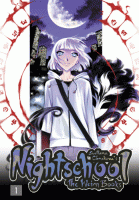 And finally, if you’re truly passionate about manga and want ownership of something, then for God’s sake, stop using scanlations as a crutch and create something original! I’m sure that warm, fuzzy feeling you get at knowing that your peers like “your” work when you upload a scanlation must be pretty great, but don’t let that feeling get to your head. Anyone with a couple years of college Japanese and access to photoshop can help make a scanlation. Instead, take a cue from Japanese fans and try your hand at doujinshi. It’ll be hard. You’ll get plenty of “likes” for your pinups of Kakashi, but don’t stop there. Learn to do sequential art. You’ll probably fail—a lot. Maybe you even copy the style of your favorite artist, or, God forbid, TRACE, but you know what? That’s okay right now because you’re not finished yet and you know better than to try and pass it as your own work. You get better. You make a real comic. Your friends won’t be nearly as excited about your crappy comic as they are about reading the next chapter of Soul Eater. They’ll try to marginalize your potential by trying to put a label on your work. Screw them. You’re better than that. Put it online for anyone to read—this time it is your right. The page views won’t be pretty, not like they were when “your” scanlations went up on OneManga. Don’t give up. Whether or not you make it big, at least you can look back at your comic and say, “that one’s mine,” and no one can tell you otherwise.
And finally, if you’re truly passionate about manga and want ownership of something, then for God’s sake, stop using scanlations as a crutch and create something original! I’m sure that warm, fuzzy feeling you get at knowing that your peers like “your” work when you upload a scanlation must be pretty great, but don’t let that feeling get to your head. Anyone with a couple years of college Japanese and access to photoshop can help make a scanlation. Instead, take a cue from Japanese fans and try your hand at doujinshi. It’ll be hard. You’ll get plenty of “likes” for your pinups of Kakashi, but don’t stop there. Learn to do sequential art. You’ll probably fail—a lot. Maybe you even copy the style of your favorite artist, or, God forbid, TRACE, but you know what? That’s okay right now because you’re not finished yet and you know better than to try and pass it as your own work. You get better. You make a real comic. Your friends won’t be nearly as excited about your crappy comic as they are about reading the next chapter of Soul Eater. They’ll try to marginalize your potential by trying to put a label on your work. Screw them. You’re better than that. Put it online for anyone to read—this time it is your right. The page views won’t be pretty, not like they were when “your” scanlations went up on OneManga. Don’t give up. Whether or not you make it big, at least you can look back at your comic and say, “that one’s mine,” and no one can tell you otherwise.